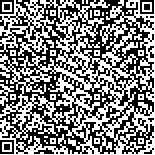| 摘要: |
| [摘要] 失语症是脑卒中后最常见的并发症之一,目前对脑卒中后失语的康复效果有限。经颅磁刺激(TMS)作为一种非侵入性技术可促进语言网络重塑,实现语言康复。该文对TMS概述、语言网络、脑卒中后语言自发恢复机制、TMS对脑卒中后失语的影响综述如下。 |
| 关键词: 经颅磁刺激 失语症 卒中 康复 语言网络 |
| DOI:10.3969/j.issn.1674-3806.2019.02.32 |
| 分类号:R 454 |
| 基金项目: |
|
| Research progress of the effects of transcranial magnetic stimulation on language networks and recovery in post-stroke aphasia |
|
CAO Wan, CHEN Zhuo-ming
|
|
Department of Rehabilitation Medicine, the People′s Hospital of Guangxi Zhuang Autonomous Region, Nanning 530021, China
|
| Abstract: |
| [Abstract] Aphasia is one of the most common complications after stroke. Currently, the clinical effects of rehabilitation on aphasia after stroke are limited. As a noninvasive technique, transcranial magnetic stimulation(TMS) can facilitate the language network remodeling and implement the language rehabilitation. The research progress of TMS, language network, post-stroke language spontaneous recovery mechanism and the impact of TMS on post-stroke aphasia is reviewed in this paper. |
| Key words: Transcranial magnetic stimulation(TMS) Aphasia Stroke Rehabilitation Language network |

